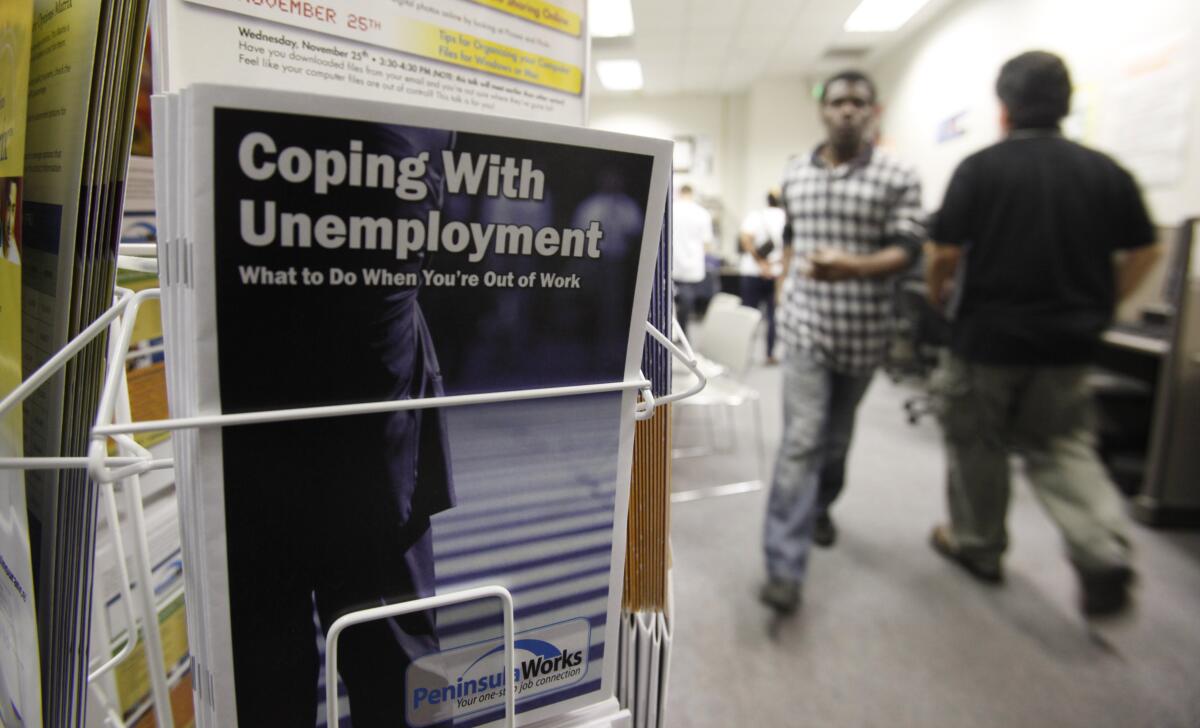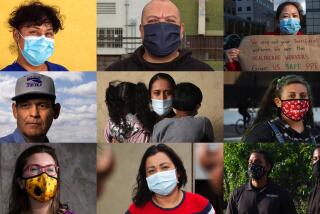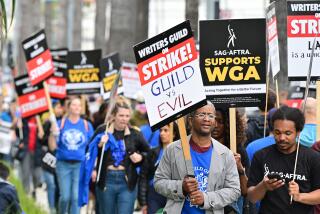California begins sending extra $900 to those unemployed due to COVID-19

As California’s economy continues to struggle amid the COVID-19 pandemic, state officials will mark the Labor Day holiday by sending a $900 supplemental unemployment benefit to jobless residents — but many will not get the assistance right away, and nearly 200,000 people are not expected to get it at all.
The lump-sum payment covers three weeks of benefits retroactive to the week that ended Aug. 1 at the rate of $300 per week and is paid for by the federal government.
On Monday, California Labor Secretary Julie A. Su announced that the state has received federal approval for an additional two weeks, or $600, bringing the total benefit to $1,500. A representative said the benefit announced Monday will go out later than this week’s initial payment.
An earlier federal program provided a $600 weekly supplemental benefit on top of normal state unemployment checks, but that program expired in July.
With Congress deadlocked over a proposal to extend that $600 benefit, an executive order by President Trump last month authorized $300 in weekly supplements, but with no guarantee of continuing beyond three weeks.
The latest payment “will provide much-needed relief” for California’s unemployed workers, said Dana Hadl, directing attorney for Bet Tzedek Legal Services in Los Angeles, but she said more is needed.
“Despite the fact that this supplement will begin to alleviate many workers’ fears that they will not be able to house and feed their families, it does not fully replace the $600 from the [Coronavirus Aid, Relief and Economic Security] Act, and Congress still needs to act to protect our country’s vulnerable low-wage workers,” Hadl said.
The state Employment Development Department said it is starting to send the first $900 in federal supplements out Monday to 3.1 million people who have been receiving at least $100 in weekly unemployment benefits from the state and previously certified that they were unemployed due to a COVID-19-related reason.
The EDD said it will take “a couple of weeks” to send out all of those benefits, with agency-issued debit card holders getting a lump-sum payment and those getting benefits by check being issued separate checks.
An additional 1.2 million claimants still need to certify eligibility that their joblessness is COVID-19 related and will be notified by the EDD starting Sept. 15 of the need to do so.
However, some 192,000 unemployed Californians will not receive the extra $300 benefit because they have been receiving less than $100 in state benefits, the threshold set by the federal government for participation, according to researchers at UCLA’s California Policy Lab.
The average state benefit received for those who are ineligible is $68 per week, according to an analysis by the lab.
Being left out of the new benefit “adds insult over injury, especially since no strong justification has been provided for why they are excluded,” said Till von Wachter, a coauthor of the report, UCLA economics professor and faculty director at the lab.
The analysis found that those not qualifying for the benefit are disproportionately younger, female and workers with a lower education level, state Sen. Maria Elena Durazo (D-Los Angeles) said.
The formula for qualifying “perpetuates an immense economic hardship for those on the brinks of being evicted, not having food on the table, or not being able to attain employment because they are essential workers whose jobs disappeared with the onset of COVID-19,” Durazo said.
But even a majority of those who get the $300 supplemental payment will have benefits below the poverty level, with the total benefits averaging $575 per week, the report said.
Seeing the amount provided by the federal government cut in half is disappointing to some unemployed Californians, including Michelle Safransky, who has struggled to get claims for benefits approved because of EDD’s ongoing problems in processing applications.
“It will definitely be more difficult to make ends meet, and I’m not sure that it’s enough for many unemployed people, including myself,” Safransky said of the $300. But, she added: “Anything will be better than nothing.”
More to Read
Sign up for Essential California
The most important California stories and recommendations in your inbox every morning.
You may occasionally receive promotional content from the Los Angeles Times.











